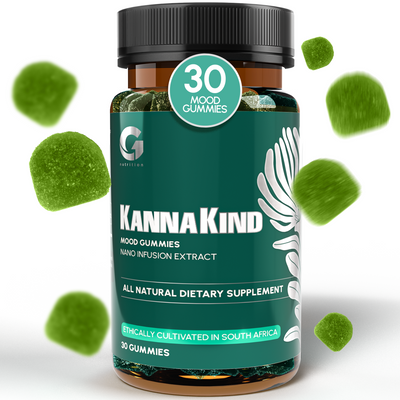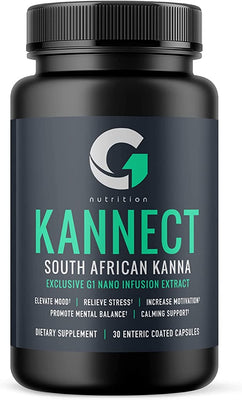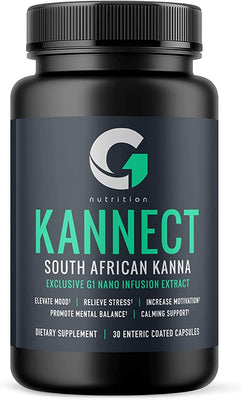Introduction: Understanding Sceletium Tortuosum: Nature’s Mood-Enhancing Plant
In today’s wellness world, many people are looking for natural ways to support mental health, focus, and emotional balance. One plant that has gained attention is Sceletium tortuosum, more commonly known as Kanna. This South African plant has been used for centuries by indigenous communities to reduce stress, enhance mood, and improve social interaction.
With modern research and innovative supplement forms, like gummies, teas, and capsules, Kanna is becoming accessible to those seeking safe, natural alternatives to pharmaceuticals. If you’re interested in learning more about how Kanna works and why it’s gaining popularity, you can start with our blog on Kanna Supplement Gummies.
In this guide, we’ll explore Kanna’s history, science-backed benefits, safe usage, and how it compares to other natural mood enhancers.
What is Sceletium Tortuosum?
Origins and Traditional Use in South Africa
Kanna has a rich history in South Africa, where indigenous Khoisan people have chewed, brewed, and smoked the plant for centuries as a mood-enhancing and calming agent. Traditionally, it was used to:
-
Relieve hunger and thirst during long treks
-
Improve social interaction and reduce anxiety
-
Treat mild ailments and enhance general well-being
The plant contains naturally occurring alkaloids, including mesembrine, mesembrenone, and mesembrenol, which are believed to influence neurotransmitters in the brain and produce feelings of calm and focus.
Pro Tip: Traditional preparation involved fermenting Kanna leaves to increase potency, a process now replicated in modern extracts for consistency.
For a deeper dive into its history and origins, see our blog: What Is Kanna? History, Origins, and Modern Use.
Modern Applications in Wellness and Supplements
Today, Kanna is available in various supplement forms. Modern extraction methods, such as the KANNECT™ nano-infusion process, maximize absorption and effect. Popular forms include:
-
Gummies: Pre-measured doses, convenient and tasty
-
Capsules: Portable, easy to track intake
-
Teas/Tinctures: Traditional use, slower onset
These supplements are now widely used for stress management, mood enhancement, and cognitive support, aligning with the modern trend of plant-based mental wellness solutions.
Key Benefits Backed by Scientific Research
Mood Support and Stress Reduction
Research shows that Kanna may act as a natural serotonin reuptake inhibitor (SRI), helping regulate mood and reduce stress. Studies indicate that users experience:
-
Reduced cortisol levels during stressful tasks
-
Enhanced resilience to daily stressors
-
Improved general well-being and calmness
A controlled trial published in the Journal of Ethnopharmacology found that participants taking standardized Kanna extracts reported significant mood improvement compared to placebo.
Anxiety Relief and Emotional Balance
Kanna’s calming effects make it a natural option for mild anxiety relief. Unlike pharmaceutical treatments, Kanna:
-
Has low risk of dependency
-
Works gently on serotonin pathways
-
Can be taken daily at moderate doses
Many users report improved social comfort and reduced social anxiety, making it suitable for work, study, or social settings.
Cognitive Focus and Mental Clarity
Some studies suggest Kanna can enhance cognitive performance, particularly:
-
Attention span
-
Task completion
-
Mental clarity under stress
By modulating neurotransmitters like serotonin and dopamine, Kanna may support focus without overstimulation.
Potential Physical Health Effects
While research is primarily focused on mental health, Kanna may also support:
-
Mild pain relief: Possibly through serotonin modulation
-
Anti-inflammatory effects: Early studies suggest reduced inflammation markers
-
Overall wellness: Traditional use links Kanna to vitality and endurance
How Sceletium Tortuosum Works in the Body
Serotonin Reuptake Inhibition and Neurotransmitter Effects
Kanna’s main mechanism involves serotonin reuptake inhibition, similar to mild selective serotonin reuptake inhibitors (SSRIs), but gentler. This:
-
Enhances serotonin availability in the brain
-
Supports mood stabilization
-
Reduces stress and anxiety
Kanna also affects other neurotransmitters, such as dopamine and norepinephrine, contributing to enhanced alertness and focus.
Other Mechanisms Explained
Beyond neurotransmitters, Kanna’s alkaloids may:
-
Modulate cortisol responses to stress
-
Promote endogenous relaxation pathways
-
Offer antioxidant support
These mechanisms explain why Kanna is both calming and mood-enhancing without sedation.
Scientific Studies and Evidence
Clinical Trials on Human Subjects
-
Mood and Anxiety: Human trials show reduced self-reported anxiety scores with standardized Kanna extracts
-
Safety: Short-term studies indicate minimal side effects, usually mild headache or nausea
-
Dosage: Typical effective doses range from 25–50 mg of standardized extract
Animal Studies and Laboratory Research
Animal studies demonstrate:
-
Behavioral calming effects in stress models
-
Neurotransmitter modulation
-
No signs of organ toxicity at moderate doses
These studies support Kanna’s safety profile and potential for mood regulation.
Expert Opinions and Herbalist Insights
Herbalists often recommend Kanna as:
-
Non-addictive mood support
-
Stress management tool
-
Safe alternative to conventional antidepressants
Expert Quote: “Kanna provides gentle, effective mood support with fewer risks than many pharmaceutical options.” – Dr. Anne Marlow, Herbalist
Featured Products
For a broader comparison, see: How Kanna Works: Effects on Mood, Anxiety, and Focus.
Comparing Sceletium Tortuosum to Other Natural Supplements
|
Supplement |
Key Benefits |
Safety Considerations |
Best For |
|
Kanna |
Mood, stress, anxiety relief |
Avoid with SSRIs/SNRIs |
Calm focus, emotional balance |
|
Ashwagandha |
Stress, sleep, hormone support |
May affect thyroid or blood sugar |
General stress relief |
|
Rhodiola |
Energy, fatigue, endurance |
Can overstimulate in sensitive users |
Focus & fatigue support |
|
St. John’s Wort |
Mild depression |
Strong drug interactions |
Mood balance |
Takeaway: Kanna is generally gentler and more targeted for emotional and cognitive support compared to other herbal supplements.
For more comparisons, see: Kanna vs. Other Natural Mood Enhancers.
Safe Use and Recommended Dosage
Forms of Sceletium Tortuosum (Gummies, Capsules, Teas)
-
Gummies: Easy to dose, ideal for beginners
-
Capsules: Higher concentration, convenient
-
Teas/Tinctures: Traditional, slower absorption
Pro Tip: Start with a single serving and gradually increase if needed. Gummies provide pre-measured doses, making tracking simple.
Potential Side Effects and Precautions
Most users tolerate Kanna well. Mild side effects may include:
-
Nausea or mild stomach discomfort
-
Temporary dizziness or fatigue
-
Headache
Who Should Avoid:
-
Pregnant or breastfeeding women
-
Users of SSRIs, SNRIs, or MAOIs
-
Individuals with severe psychiatric conditions
Interactions with Medications
Kanna affects serotonin and may interact with:
-
Prescription antidepressants
-
Stimulants like caffeine or Adderall
-
Alcohol in high doses
Consult a healthcare provider before combining with other substances.
Conclusion
Harnessing the Benefits of Sceletium Tortuosum Safely and Effectively
Kanna is a well-researched, natural supplement that supports mood, stress relief, and cognitive focus. With proper dosage and quality-controlled products, like KannaKind Kanna Gummies, users can safely integrate Kanna into their wellness routines.
By understanding its science-backed benefits, traditional use, and modern applications, you can make an informed choice for your mental and emotional well-being.
Pro Tip for Users: Combine Kanna with a healthy lifestyle—balanced diet, exercise, stress management, and sleep—for optimal results.
Related Blogs
FAQs About Sceletium Tortuosum
1. Is Sceletium Tortuosum Addictive?
No, research shows Kanna does not produce dependency.
2. Can It Be Taken Daily?
Yes, moderate daily use is generally safe when following recommended dosage.
3. What Happens If You Take Too Much?
Higher doses may lead to mild nausea, drowsiness, or headache. Always follow label instructions.
For a more detailed safety guide, see: Is Kanna Legal and Safe to Use? A Science-Based Look.



